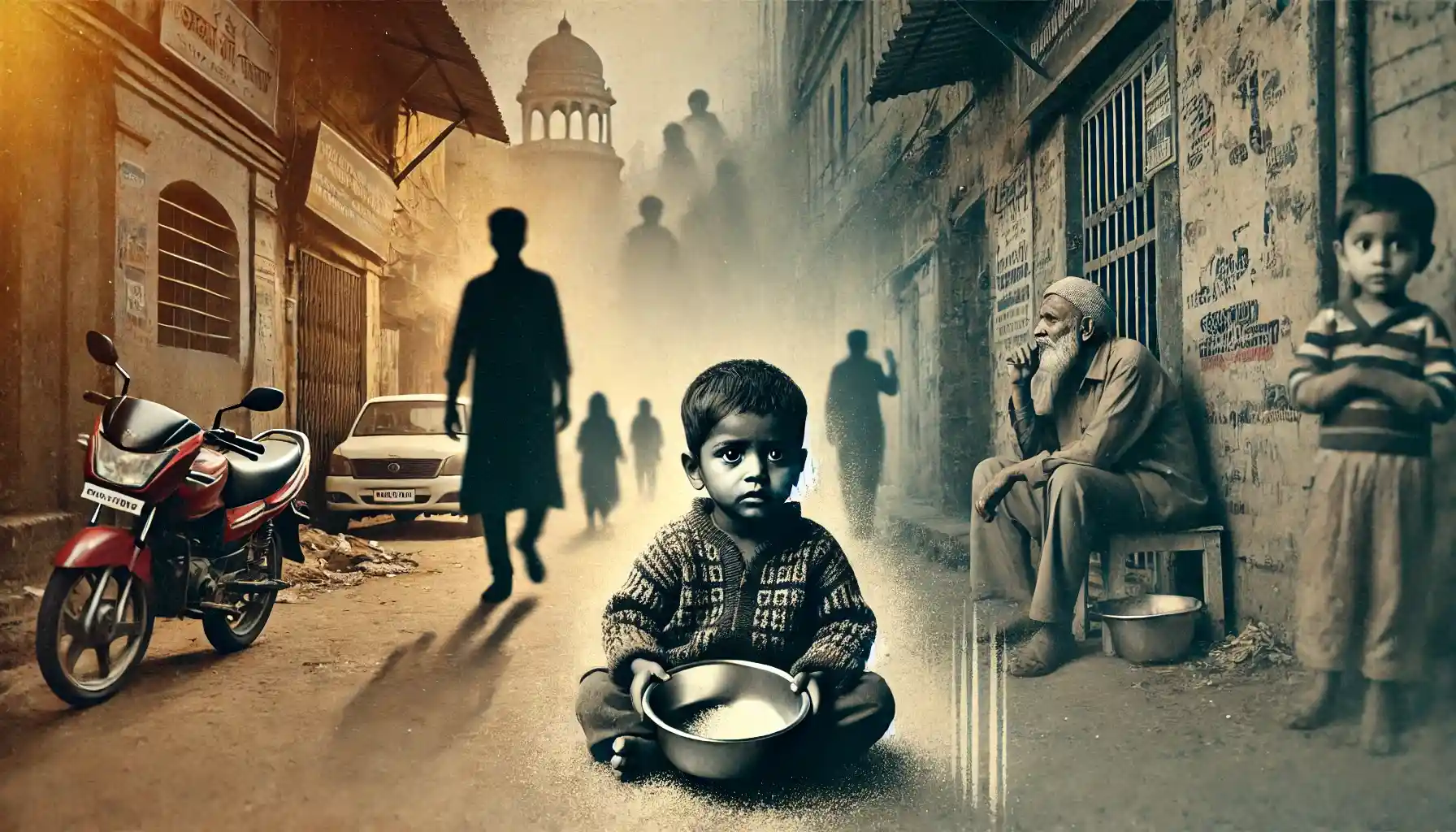The Harsh Reality of Beggars in India: Understanding Exploitation and Solutions
In India, encountering beggars on the streets has become a common sight, yet the reality behind beggars in India is far more complex and troubling. Many Indian beggars, especially children, are victims of exploitation within organized begging scams, where criminal networks profit from their hardship. This article delves into the reality of Indian beggars, exploring how children are forced into begging, the deep social impact, and viable solutions to address the growing problem of beggars in India.
Understanding the Begging Scams in India
The majority of begging operations in India are orchestrated by organized groups that target vulnerable individuals, including children, to manipulate public sympathy for profit. These Indian begging scams create an illusion of desperation, making it difficult for the public to differentiate between genuine need and organized exploitation. Children, in particular, are exploited, as they evoke a stronger sympathetic response, resulting in more donations.
Why Are Children Exploited in Indian Begging Scams?
- Emotional Manipulation: Young children are often forced into begging because they evoke a stronger emotional response from the public. This is a primary tactic within begging scams in India, as people are more inclined to give money to a child than to an adult.
- Socioeconomic Challenges: High poverty rates and limited education options create circumstances where families may feel forced to send children to beg or, in some cases, are unknowingly ensnared by criminal networks that exploit Indian beggars.
Exploitation Tactics in Indian Begging Networks
Exploitation methods used against Indian beggars are often brutal and dehumanizing:
- Coercion and Manipulation: Many children are coerced or even kidnapped into begging. Families may be deceived by false promises of financial assistance or a better life, only to find their children used as pawns in organized begging scams in India.
- Drugging and Deprivation: In extreme cases, children are given drugs to appear weak or sick, increasing public empathy and donations. This manipulation is tragically common in the reality of Indian beggars.
- Physical Harm: Some children are subjected to intentional injuries, as visible disabilities increase the likelihood of receiving charity. This abusive tactic deepens the trauma for children, making them physically and emotionally vulnerable.
The Problem of Beggars in India: Impact on Society and Children
Organized begging networks not only harm individuals but also carry far-reaching consequences for society, especially affecting children:
- Physical and Mental Health Consequences: Indian beggars, particularly children, frequently suffer from malnutrition, lack of medical care, and exposure to hazardous conditions, taking a severe toll on their health and overall development.
- Psychological Trauma: The trauma of forced begging can lead to lifelong psychological issues, such as anxiety, depression, and difficulty trusting others. The emotional toll on children only adds to the problem of beggars in India.
- Educational Deprivation: With no access to education, these children are trapped in cycles of poverty and dependency. This situation further perpetuates the begging problem in India by limiting opportunities for growth and development.
- Social Perception: The prevalence of begging networks creates an image of poverty and desperation in Indian society, affecting the nation's image and contributing to social challenges, including discrimination against those in need.
Wait, wait, wait! Don't miss out on crucial discussions and updates! Join our community on WhatsApp to stay informed about our latest articles and initiatives tackling social issues. Click here to join our WhatsApp group: Join Our WhatsApp Group.
Addressing the Problem of Beggars in India: Legal and Social Solutions
Addressing the problem of begging in India requires a multifaceted approach that includes legal reform, social intervention, and public awareness:
- Strict Enforcement of Anti-Begging Laws: Although India has laws against child exploitation and trafficking, enforcement remains a significant challenge. Organized begging networks often operate unchecked due to loopholes and lack of effective policing. Strengthening these laws and ensuring strict enforcement can help curb the influence of begging rings.
- Role of NGOs and Social Workers: Many non-governmental organizations (NGOs) work tirelessly to rescue and rehabilitate children trapped in begging rings. These organizations provide shelter, education, and psychological support, offering a lifeline to those who have suffered due to the reality of Indian beggars. Support for these NGOs is essential in creating long-term solutions.
- Public Awareness Campaigns: Public awareness is critical to tackling the issue. People can help by refraining from giving money directly to children on the streets and instead donating to legitimate charities and organizations that address the problem of beggars in India. Campaigns can educate citizens on the difference between supporting rehabilitation versus encouraging begging.
- Community Support Programs: Introducing community-based support programs can aid families in poverty by providing access to resources such as education, healthcare, and vocational training, reducing the risk of exploitation. By improving living conditions, fewer families would turn to begging as a means of survival.
- Education and Skill Development: Providing education and skill training to impoverished communities offers them an alternative livelihood, reducing the appeal of begging. Educated children have better chances of employment, empowering them to break free from poverty cycles.
Long-Term Solutions to Reduce Begging in India
Combating begging in India requires both short-term interventions and long-term changes:
- Comprehensive Welfare Programs: Government welfare programs can provide basic necessities to vulnerable families, ensuring they are not pushed into begging due to lack of options. Programs that focus on housing, healthcare, and employment are essential to tackling the root causes of poverty.
- Psychological Support for Victims: Rescued children need psychological rehabilitation to overcome the trauma experienced during their time in begging networks. Counseling and mental health programs can play a vital role in helping these children rebuild their lives and regain a sense of normalcy.
- Improving Urban Planning: Creating safe, well-designed public spaces can deter organized begging rings from occupying certain areas, allowing authorities to better monitor and manage these locations.
Conclusion: How to Solve the Problem of Beggars in India
The issue of beggars in India is multifaceted, fueled by poverty, exploitation, and systemic challenges. Recognizing the exploitation that many Indian beggars face, especially children, is an essential first step. Legal enforcement, NGO support, and public education all play vital roles in addressing this complex issue. Moreover, the public can contribute significantly by staying informed and supporting organizations dedicated to ending exploitation. Only through a combined, sustained effort can we hope to create a future free from exploitation, offering hope and opportunities for those trapped in the harsh reality of Indian begging scams.



add your comment